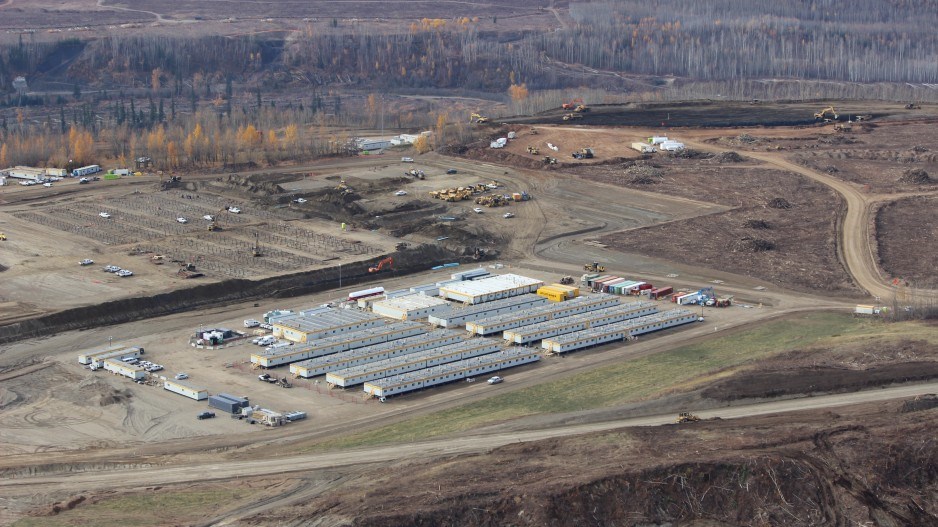The Site C dam on the Peace River could meet its 2024 in-service date on time, even with a one-year delay, but coming in on budget appears to be in serious doubt, according to a BC Utilities Commission (BCUC) preliminary report published last night (September 20).
The project’s budget is $8.3 billion but had an additional $794 million contingency built into it. BC Hydro also said it has identified cost savings that bring the contingency to $1.19 billion.
But as the BCUC points out in its report, 45% of the $794 million contingency has already been used up just two years into an eight-year construction project.
The new NDP government has asked the BCUC its opinion on whether the project can be built on time and on budget and whether the best option would be to complete the project, cancel it or mothball it.
But the BCUC has asked BC Hydro to come back with more information to fill in “information gaps.”
“After having reviewed BC Hydro’s expenditures and other documentation, the panel finds that it has insufficient information at this point to determine whether the project is within its proposed budget, as of June 30, 2017,” the BCUC states.
Even so, the BCUC will immediately begin holding public hearings soon to gather feedback to its 205-page preliminary report. The first is on Saturday, September 23, in Vancouver.
One of the more contentious questions is whether the large hydro project is the lowest cost option.
BC Hydro has calculated that the delivered cost of energy with Site C is about $64 to $67 per megawatt hour (MW/h), whereas it pegs alternative energy sources, like wind power, at $110 MW/h.
The BCUC panel has found BC Hydro’s calculations “not well explained” and has asked BC Hydro to come back with more detail to explain its calculations.
It also said BC Hydro “distorts” the comparisons by ascribing taxpayer subsidies to Site C that independent power producers would not enjoy to create an “apples to oranges” comparison that could make alternative energy sources seem higher than they might be.
BC Hydro managed to lower its Site C costs by transferring some of the financing from ratepayers to taxpayers, which could also create an unequal playing field.
Those calculations have been questioned by a number of groups making submissions to the BCUC, and the BCUC itself is asking BC Hydro to provide a better explanation of how it came up with the calculations.
BC Hydro is working on a construction schedule that is “more aggressive” than originally proposed – an acceleration that now puts the dam’s completion one full year ahead of the original in-service date of 2024.
Given the time buffer built into the schedule, that means the project could still meet its in-service date of 2024, even with a one-year delay.
If a critical river diversion, which must take place in the fall, when river levels on the Peace River are lower, is delayed by one year, the project could still be in service by 2024 under BC Hydro’s new more “aggressive” schedule.
But BC Hydro itself has estimated the added cost of a one-year delay to be more than $600 million.
“Should there be a one-year delay of the river diversion, the panel is concerned that the project will have consumed its one-year ‘owner’s float’, although BC Hydro would still have float within specific contractors’ schedules and other contingencies available,” the BCUC warns.
A number of submissions point to other large hydro projects that have gone over budget to suggest that Site C is almost certain to go over budget too. The BCUC rejects those comparisons.
“We do not find that generalized studies or other project comparisons are sufficiently relevant to draw specific conclusions about the Site C project,” it states.
However, Deloitte warns in its reports that the project could be over budget by as much as 50%.
BC Hydro under-estimated the cost of the winning bid for the main civil works – $1.75 billion – and there is insufficient information about the remaining main contracts for building a spillway and generating station to accurately predict BC Hydro’s financial wiggle room.
“Should it have under-estimated the cost of the two other major contracts still to be awarded, for the generator station and spillway and for transmission, there may not be sufficient budget contingency remaining,” the BCUC warns.




